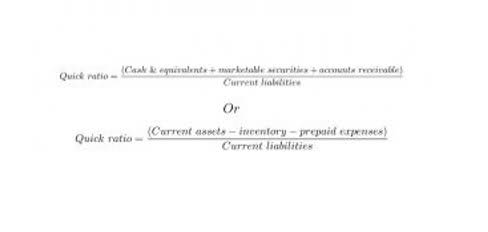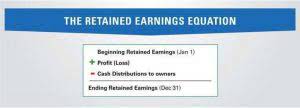
Financial institutions use Eisen’s escheatment, disbursement, and outreach tools to streamline account offboarding while automating manual work and reducing risk of non-compliance. Request a demo today and take the first step towards effortless compliance. These communications should inform the payee of the unclaimed funds and provide instructions on how to claim them.
- For the recipient, the outstanding check is considered a debit, since debits record incoming money.
- To reconcile outstanding checks with your bank statement, compare the checks issued but not yet cleared with the information provided on the statement, ensuring that both records align.
- It is a secure, reliable and cost-effective way to transfer funds between institutions.
- Inquire about other options, such as digital payments, that can take place quickly and reduce the chances of a payment being lost or expiring.
- These standards could impact the way a payee reports an outstanding check on their financial statements until it has been deposited and cleared.
- Uncleared check issues can lead to legal disputes, fraud-related charges, and poor accounting records.
Benefits of Outstanding Checks
Uncashed checks written to vendors are considered unclaimed property if the check remains uncashed three years from the date of issue. For uncashed payroll checks to employees, checks are considered unclaimed property after just one year. When dealing with outstanding checks, you may wonder if there’s a limit on how long someone has to cash a check. Knowing when a check expires is an initial step adjusting entries before deciding whether to write a new check. If a check is outstanding for less than six months, you generally don’t want to write a new one.

Follow through on unclaimed property
When you write a check, you authorize your bank to transfer funds from your account to another party’s account upon presentation of the check by that party to their bank. The process of cashing or depositing the check is called “clearing the check.” If the payee decides not to deposit or cash the check right away, it remains outstanding. This means that although the payor’s account balance is reduced outstanding checks due to writing the check, no funds have been transferred out of their account yet.
- State-specific escheatment laws require businesses to report and remit unclaimed financial assets, such as uncashed checks, after a set dormancy period.
- In the U.S., outstanding checks are considered to be unclaimed property and the amounts must be turned over to the company’s respective state after several years.
- Moreover, if the payee does cash or deposit an old check, it could cause confusion regarding financial records and reporting.
- Understanding their implications is crucial for businesses and individuals to maintain accurate financial records.
What is Outstanding Check
- On the payor side, it creates the need to carefully track uncashed checks so that money doesn’t get spent on other things.
- Like business checks, personal checks are generally considered invalid after six months (180 days).
- This means that the bank balance will be greater than the company’s true amount of cash.
- If you do write a new check, it may be safest to request that the old one be returned or ask for proof that it’s been voided.
- These checks include those that are outstanding and have not been cashed yet.
An outstanding check can also mean that a check was deposited at a bank but is still going through the process of clearing. This means it is en route to becoming available funds in the payee’s bank account, but it’s just not quite there yet. The liability of an outstanding check persists until it is cashed by the payee or processed through the banking system (usually taking 5-10 business days). In case the payee decides not to use the check or loses it, it can become a stale check – a check that has expired due to various reasons such as being dated too far in the past. Once such checks are finally deposited, they can cause accounting problems.

Escheatment for Utility Companies: A Practical Compliance Guide
Many checks remain outstanding which can cause risks to both the person holding a check and the entity that issued it. Fortunately, with today’s technology and mobile banking capabilities, it’s easier and faster than ever to deposit checks. Until it has been deposited and cleared, outstanding checks are liabilities on the payor’s balance sheet. This can be a challenge for both consumers and small business owners, because enough cash must be kept in the account drawn upon to cover outstanding checks until they are cashed. Outstanding checks can complicate accounting because the assumption is that a check gets issued, deposited, and paid.
Consider Alternative Payment Methods

So, you’ve made all necessary attempts to reach the payee, completed due diligence, and filed reports. Now, you remit unclaimed funds to the appropriate state agency based on local deadlines. Timely remittance fulfills your legal obligations and helps maintain a positive relationship with regulatory Medical Billing Process authorities. This guide simplifies the escheatment process to understand checks with clear, actionable steps to help you manage this task efficiently and effectively. Before sending one, ask the payee to return the old check to eliminate the possibility of both checks being deposited, either intentionally or unintentionally. Remember, a check is just a promissory note until it’s cashed, so if your follow-up game is weak, consider it a donation to the bank’s bottom line.
- Even if this policy isn’t written on the check, most banks have policies around check expiration.
- Checks that remain outstanding for long periods of time cannot be cashed as they become void.
- In the next section, we will discuss the implications and risks of having outstanding checks in detail.
- If the old check is deposited, your bank might honor it, and you could consequently end up paying double.
- Alternatively, if you both use the same bank or credit union, the transaction will conclude when the money is transferred from your account into the payee’s account.
- One vital strategy is keeping track of stale dated cheques and ensuring they are voided after a certain period.
Risks Associated with Outstanding Checks

On your reconciliation sheet, outstanding checks are often subtracted from your balance per bank because these withdrawals have not yet happened but are simply a timing matter. As businesses have to abide by the unclaimed property laws, any checks that have been outstanding for a long time must be remitted to the state as unclaimed property. As such, there is no incentive to wish for an outstanding check to permanently never be cashed as the payment is subsequently owed to the government for holding. This can help prevent any unnecessary NSFs if the payee decides to cash the check at a later date.